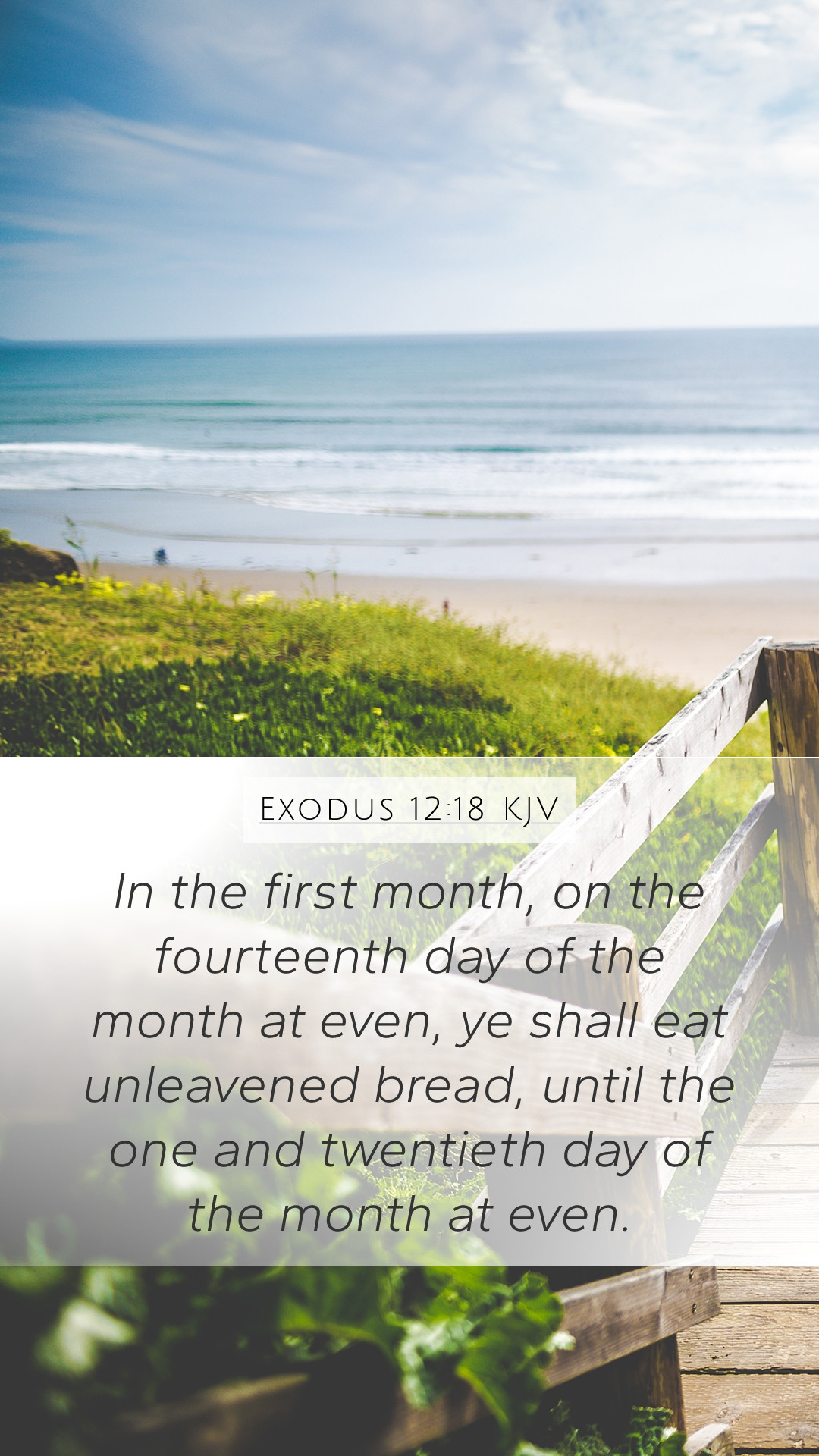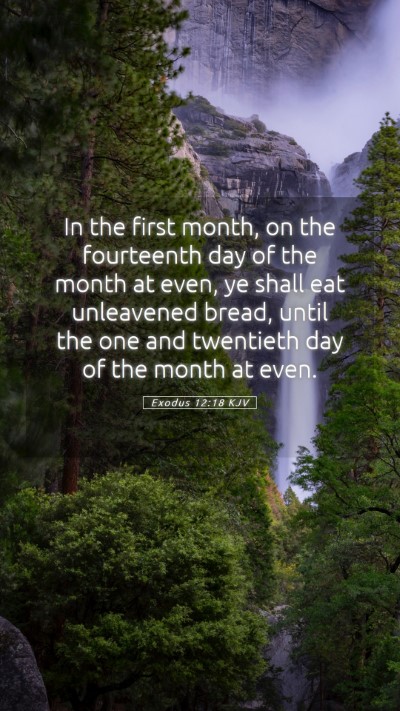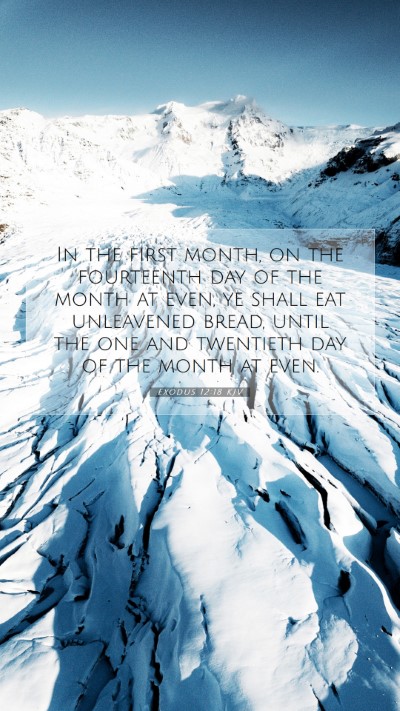Bible Verse Commentary on Exodus 12:18
Exodus 12:18 states: "In the first month, on the fourteenth day of the month, at evening, you shall eat unleavened bread, until the twenty-first day of the month at evening." This verse marks a significant command regarding the observance of the Passover and the Feast of Unleavened Bread, integral to the Israelite identity and worship.
Understanding Scripture
According to Matthew Henry, this verse emphasizes the importance of obedience to divine instructions. The timing of the feast, being in the first month, signifies the beginning of a new agricultural year and a new phase of freedom from slavery in Egypt. It reflects not only a historical event but also spiritual renewal for the Israelites.
Albert Barnes provides insight into the symbolism of unleavened bread, which represents purity and the absence of sin. The command to eat unleavened bread for a week serves as a reminder of the haste in which the Israelites had to leave Egypt, symbolizing their rapid deliverance and the need to avoid leaven, which can be seen as a metaphor for sin.
Adam Clarke highlights the significance of the evening, noting that many ancient rituals began at sundown, aligning with the Jewish practice of marking days from sundown to the next sundown. This usage underscores a transition from the old life of bondage to a new beginning of freedom under God’s covenant.
Bible Verse Meanings
- Obedience: The passage underscores the crucial role of obedience in worship and relationship with God.
- Symbolism: Unleavened bread symbolizes purity, divine intervention, and the removal of sin or corruption.
- Historical Context: The timing indicates liberation and establishes a rhythm of worship that continues in Jewish tradition.
In-depth Bible Verse Analysis
This verse serves as a historical reminder and an ongoing spiritual practice. Each component from the specific timing to the elements of the feast holds layers of meaning relevant to both ancient and contemporary followers. The observance connects the Israelites' past to their present worship, fostering a sense of community and identity.
Significance of the Passover
The Passover is not merely a historical event; it encapsulates God’s promise of deliverance and covenant. As described by Clarke, the act of eating unleavened bread is both a personal and communal act, reinforcing the Israelites' collective identity as God's chosen people.
Application of Bible Verses to Daily Life
Understanding the significance of Exodus 12:18 can guide believers today in theological reflection and practice:
- **Regular Reflection:** Just as the Israelites were commanded to observe the Passover annually, modern believers are encouraged to reflect on their spiritual journeys regularly.
- **Purity in Life:** The symbolism of unleavened bread instructs Christians to pursue a life characterized by purity and holiness.
- **Responsive Worship:** Following God’s commandments attentively can lead to spiritual growth and deeper connection with the divine.
Additional Bible Cross References
- Exodus 12:14: Discusses the significance of the day and the memorial aspect of Passover.
- 1 Corinthians 5:7-8: Highlights the Christian emphasis on Christ as the Passover lamb and the call to live a life free from sin as depicted through unleavened bread.
- Matthew 26:17-19: Describes the Last Supper in the context of Passover, drawing connections between Old and New Testament practices.
Conclusion
Exodus 12:18 is a poignant reminder of the Israelites' liberation and the sacredness of obedience in divine worship. Through understanding this verse, believers gain critical insights into their faith, the importance of purity, and the continuity of God's promises throughout Scripture.
For those engaging in bible study groups or seeking online bible study tools, comprehending the depth of such passages through bible study resources can facilitate a richer engagement with the Biblical text.


